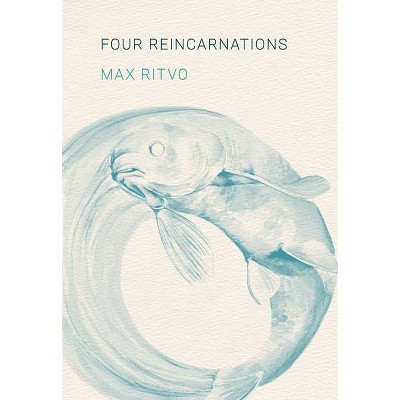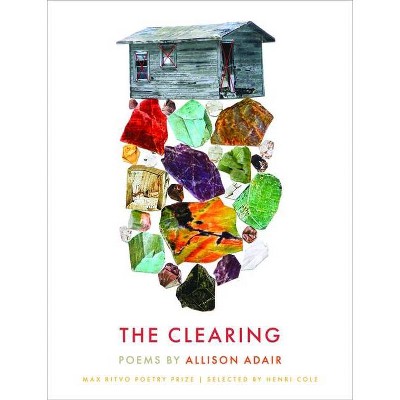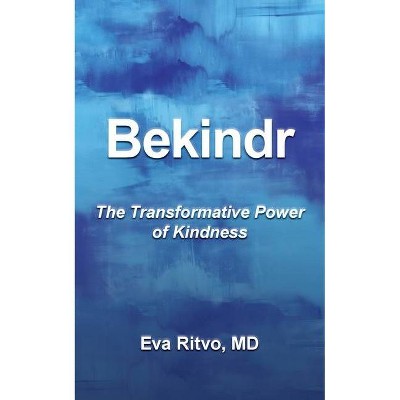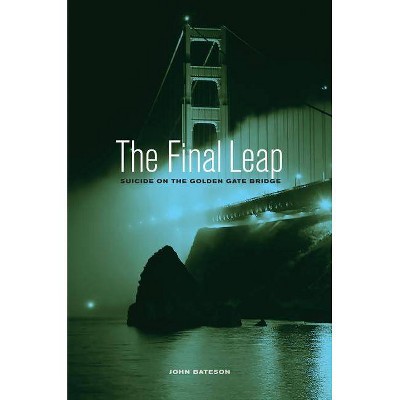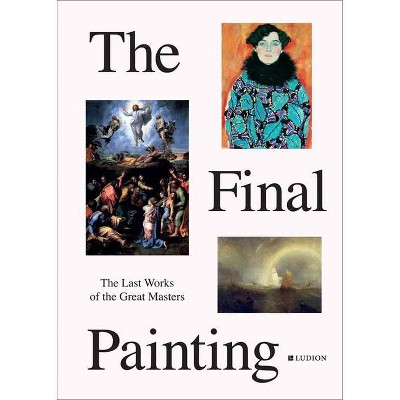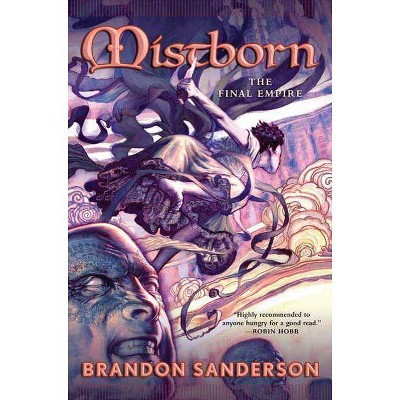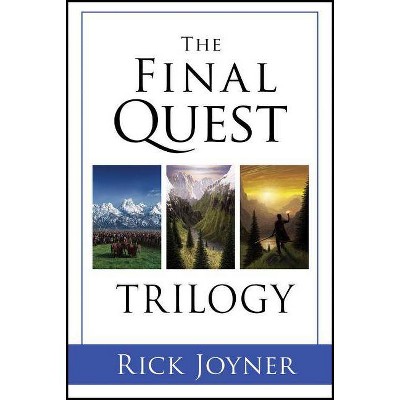The Final Voicemails - by Max Ritvo (Hardcover)
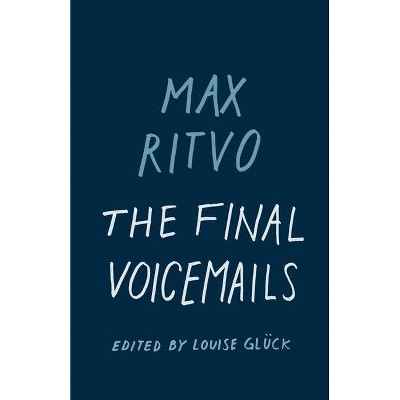
Similar Products
Products of same category from the store
AllProduct info
<p/><br></br><p><b> About the Book </b></p></br></br><b>"Max Ritvo sounds like no one else--this is the rarest of all possible gifts." --LOUISE GLÜCK</b><p/><br></br><p><b> Book Synopsis </b></p></br></br>"Even present tense has some of the grace of past tense, / what with all the present tense left to go." From Max Ritvo--selected and edited by Louise Glück--comes a final collection of poems fully inscribed with the daring of his acrobatic mind and the force of his unrelenting spirit. <p/> Diagnosed with terminal cancer at sixteen, Ritvo spent the next decade of his life writing with frenetic energy, culminating in the publication of <i>Four Reincarnations</i>. As with his debut, <i>The Final Voicemails</i> brushes up against the pain, fear, and isolation that accompany a long illness, but with all the creative force of an artist in full command of his craft and the teeming affection of a human utterly in love with the world. <p/> The representation of the end of life resists simplicity here. It is physical decay, but it is also tedium. It is alchemy, "the breaking apart, / the replacement of who, when, how, and where, / with what." It is an antagonist--and it is a part of the self. Ritvo's poems ring with considered reflection on the enduring final question, while suggesting--in their vibrancy and their humor--that death is not merely an end. <p/> <i>The Final Voicemails</i> is an ecstatic, hopeful, painful--and completely breathtaking--second collection.<p/><br></br><p><b> Review Quotes </b></p></br></br><br><b>Praise for <i>The Final Voicemails</i></b> <p/> "Astonishing . . . These poems envision countless afterlives, each one more arresting than the last. . . . Ritvo's legacy, like Emily Dickinson's, will resemble not a solemn monument but a vibrant workshop, left open for readers to explore."<b>--<i>New Yorker</i></b> <p/> "[<i>The Final Voicemails</i>] reflects Ritvo's astonishing linguistic agility, singular vision, and thought processes as well as his frankness, quirkiness, and sly humor. . . . It will stand as a testament to the salvation that is poetry, and how it lives beyond the page and the poet."<b>--<i>Booklist</i> (starred review)</b> <p/> "Stunning and heartbreaking . . . pressing and otherworldly . . . A collection that displays the breathtaking talent and effortlessly surprising shifts that marked [Ritvo's] first collection, <i>Four Reincarnations</i>. . . . These poems are raw and immediate, unflinching musings on the nature of the body, spirit, illness, and death."<b>--<i>Publishers Weekly</i> (starred review)</b> <p/> "In <i>The Final Voicemails</i> [Ritvo's] words engage with doubt and certainty in a manner that goes well beyond mere knowledge. They convey the sort of wild and strange imagery that so many contemporary poets strive to achieve. . . . These poems offer a surreal, in- and out-of-body candor that, at times, can be devastating to read. . . . [Ritvo] left us a legacy of wisdom in poetic reflections few have surpassed."<b>--The Rumpus</b> <p/> "An aesthetic and moral achievement. . . . Very few disciples of Ashbery have come so close to equaling the master's ability to coax a sense of mythic import out of personal life."<b>--<i>World Literature Today</i></b> <p/> "Ritvo gives us poetry, so affirming, so beautiful, and so mortal."<b>--<i>Columbia Journal</i></b> <p/> "In his second collection of poems, <i>The Final Voicemails</i>, the late Max Ritvo pulls back the curtains of the rooms that occupy his body and mind. . . . in these pages he still welcomes us into his home furnished with pain, loneliness, and joy all abound with his signature wry humor and transcendent hope."<b>--<i>The Arkansas International</i></b> <p/> "The <i>Final Voicemails</i> is pressing, pressurized, and prescient beyond both its years and its words. These poems retell a life filled with pains and joys that are so intense they should almost be wordless, were they not performed here with Max Ritvo's immeasurable talent for articulating the piercing moments of life that so clearly demonstrate transcendence. Ritvo was a genius. He understood what poetry was meant to do in all its greatest moments and then pushed it to go just a little bit farther. Hundreds of years from now, we will still be talking about this book's unbearable truths, and its unbearable feats."<b>--Dorothea Lasky</b> <p/> "Since Max Ritvo's passing, I've heard critics compare him to Wallace Stevens, Rainer Maria Rilke, John Keats, and countless others. Of course, Max wasn't any of them exactly, but it's astonishing that one inscrutable young poet could evoke comparison with such titans while still remaining so enchantingly himself. In <i>The Final Voicemails</i>, we see Ritvo at his most imaginative--clouds are worn as wigs, meat is cut into a braid of arrows, a carpenter nails brains to the side of a lung. The effect is wild, incantatory. You'll find yourself beaming with your whole heart, even as Ritvo breaks it again and again."<b>--Kaveh Akbar</b> <p/> <b>Praise for <i>Four Reincarnations</i></b> <p/> "Good-humored, appealingly sly, and surprisingly whimsical."<b>--<i>New York Times Book Review</i></b> <p/> "This is an extraordinary body of work, the poems marked by intellectual bravado and verbal extravagance; Max Ritvo's dazzling suppleness of mind manifests itself in electric transitions and unexpected juxtapositions, in wide-ranging reference and baroque allusion. But what makes this book unforgettable is the core of intense emotion at the heart every poem. <p/> "Max has been dealt a bleak but fertile subject: the result is not, as one might expect of an artist so young, a poetry of harsh autobiographical intimacy. What happens in these pages is an expansion, not a contraction; its result is an increased freedom and boldness and daring. The poems are alive with imperatives (as they must be when time is short), but urgency is everywhere conjoined with invention. When the poems do touch, directly and dramatically, on mortality, they are simultaneously candid and radically direct or brief, as in 'Second Dream' everything on the page is essential. <p/> "<i>Four Reincarnations</i> is one of the most original and ambitious first books in my experience. Max Ritvo sounds like no one else--this is the rarest of all possible gifts and means that, at their best, these poems do things in the language that haven't been done."<b>--Louise Glück</b> <p/> "A Max Ritvo poem is: <br> A map drawn by hand to show where the body is buried.<br> A card trick with words . . . 'Don't show me how you did it.'<br> Like reading the last sentence in a book first.<br> Dragging words across the page like a bow across a string.<br> A piece of candy covered with ants.<br> Like silverfish ate the words off a page . . . and left you a riddle.<br> All of the above."<b>--Tom Waits</b> <p/> "In <i>Four Reincarnations</i>, Max Ritvo brings us along where poetry needs to go; away from the small confessional and into a big world of death, love, and metaphysics. While allowing for the possibility of a confessional mode in the details, Ritvo's poems take stock of the nineteenth-century sublime, adding the contemporary death of God, and going forward with bravery, irony, and the most compassionate sense of humor. The relationship he hews between language and the body is both original and hard won. His lyric complicity is between self, dedicatee, reader, and world. Ritvo's ear for language is beautiful, as is his spirit. His poems defy solipsism and enter a cosmology of unconditional love. How lucky I am that I found Max Ritvo and his poetry; he makes me love poetry again."<b>--Sarah Ruhl</b> <p/> "This is poetry written in the dark light of dying young. You feel the truth of this poetry too deeply to want to talk about it in your own words. You want to give it to other people still back here in health, to say to them, 'Here: the earthly gift of this poet of genius, Max Ritvo.' To Max himself, we might say what he says to his wife in one of these poems: 'Thou art me before I am myself.' In the sense, not of death, but of most ardent life."<b>--Jean Valentine</b> <p/> "If you could confect a numinous cauldron and stir into it the lumens of Christopher Smart's Spiritual Musick, the spirit-hounds of Hopkins' 'terrible crystals, ' the hysteria of Monty Python's antics, the grace and depth of Keats's early wisdoms, you would render incarnate the first and final book of Max Ritvo's <i>Four Reincarnations</i>. The poems flicker like fireflies let loose from their captivity in a mason jar, fulgurating like Nobodaddy's business. Somehow, somewhere, Ritvo must have begun as an infant scholar, a prodigy, a young man of the rarest and most prescient gifts. This is a dazzling collection, rife with life, and with death, impending. This book, then, will be the afterlife. Ritvo's work is extracelestial, riddled with brilliance and with ecstasies. We are lucky to have this luminous collection in our world. It will go on. And then on."<b>--Lucie Brock-Broido</b> <p/> "Armed with intelligence, valor, audacity, and grace, Max Ritvo's imagination pushes back against one grim reality after another in its insistence on celebrating being embodied in the first place. No poet I can think of undertakes the transmutation of suffering into art with anything resembling Ritvo's wild theatricality, inclusiveness, and tonal range. Dizzying, out of proportion, poundingly felt, fantastical, fanatical, urgently constructed, confessional, gaudy, absurd, mystic, harrowing--the fact that Ritvo's work can be described in so many ways is testament to its complexity. The fact that we can never quite describe it in full is evidence of its irreplaceability. The fact that it haunts so many of its readers is proof that it has already become a necessary and sustaining part of us--some measure of our acquired wisdom, some portion of our vision of what it means to be alive."<b>--Timothy Donnelly</b> <p/> "Silly, sweet, and sad all at once. Ritvo was able to revel in the absurdity―and poignancy―of his condition."<b>--<i>O, The Oprah Magazine</i></b> <p/> "Vital and unflinching poems that emerge from the unflagging energy of a mind embedded within, yet constantly struggling beyond, the suffering of his body. Ritvo's poems sizzle over the all-to-brief fire of his hungry and staggering imagination."<b>--<i>Publishers Weekly</i> (starred review)</b> <p/> "By turns carnal and cerebral, prophetic and pragmatic, crude and contemplative, Ritvo's voice is a wildly imaginative and frenetic force."<b>--<i>Booklist</i> (starred review)</b> <p/> "Seen as a leading poet of his generation, Ritvo was diagnosed with cancer in his teens and died in August at age 25. In breathtaking language, he chronicles not what it's like to be dying but what it's like to be living."<b>--<i>Library Journal</i> (starred review)</b> <p/> "Ritvo has left behind a rich collection of poetry that emboldens us to bravely inhabit our bodies and to look toward the future."<b>--<i>Guernica</i></b> <p/> "There is no doubt in my mind that Max Ritvo's first and only poetry collection is among my favorite books that I have ever read, to say nothing "<b>--<i>Adroit Journal</i></b> <p/> "Compelling, relatable, and heartbreaking . . . there is deliberate, conscious artistry [in <i>Four Reincarnations</i>]."<b>―<i>Kenyon Review</i></b> <p/> "Max Ritvo's debut poetry collection, which unflinchingly addresses his cancer diagnosis, ranges from the sublime to the profane. It is alternatively heartbreaking and joyful, visceral and sensual, funny and wise."<b>--Literary Hub</b> <p/><br><p/><br></br><p><b> About the Author </b></p></br></br><b>Max Ritvo</b> (1990-2016) was the author of <i>Four Reincarnations</i> and the chapbook <i>Aeons</i>, chosen by Jean Valentine to receive the Poetry Society of America Chapbook Fellowship in 2014. Ritvo's poetry has appeared in the <i>New Yorker</i>, <i>Poetry</i>, and the <i>Boston Review</i>, and as a Poem-a-Day for Poets.org. His prose and interviews have appeared in publications such as Lit Hub, <i>Huffington Post</i>, and the <i>Los Angeles Review of Books</i>.
Price History
Cheapest price in the interval: 19.39 on October 23, 2021
Most expensive price in the interval: 19.39 on November 8, 2021
Price Archive shows prices from various stores, lets you see history and find the cheapest. There is no actual sale on the website. For all support, inquiry and suggestion messages communication@pricearchive.us
